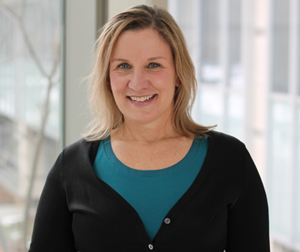 |
|
|
Patricia McQuilkin, MD |
Since the Ebola epidemic killed more than 11,000 people in Liberia and deeply eroded the country’s fragile health care system three years ago, UMass Medical School has continued its efforts to help rebuild its medical education and physician residency programs and is seeing results. UMMS first partnered with Liberia to restore and further develop a system to train doctors more than a decade ago, after years of civil war had decimated its medical system.
“For me, to see these medical students who we started working with many years ago now coming through the ranks and becoming faculty, it nearly completes the project,” said Patricia McQuilkin, MD, associate professor of pediatrics, who has led numerous grant-funded operations in Liberia.
A new, three-year, $1.5 million Partnership for Enhanced Engagement in Research (PEER) grant from the National Academies of Sciences and USAID will support UMass Medical School’s work to establish family medicine residency training and infectious disease research and training for Liberian medical residents and junior faculty. Colleagues from Yale and Vanderbilt universities will focus on advancing ophthalmology training and research as it relates to Ebola survivors. UMMS continues its partnership with the A.M. Dogliotti College of Medicine on this next phase of the initiative.
The grant will support the establishment of family practice programs; establish infectious disease training and curriculum development, with emphasis on emerging infectious diseases; support clinical research training; and advance ophthalmology training.
Dr. McQuilkin will be joined by Steven C. Hatch, MD, associate professor of medicine; Ann Moormann, PhD, associate professor of epidemiology; Sanjay Ram, MD, professor of medicine; and Douglas Golenbock, MD, the Pillar Chair in Biomedical Research, professor of medicine and microbiology & physiological systems and chief of the Division of Infectious Disease and Immunology, to develop curriculum and protocol for a new infectious disease research program.
“It is well timed because the residents are finishing their training and in order for them to be recognized by the West African College of Physicians and Surgeons, they are required to have two years of clinical training and six months of mentored research,” McQuilkin said.
UMMS colleagues Olga Valdman, MD'09, assistant professor of family medicine & community health, and Richard A. Sacra, MD, assistant professor of family medicine & community health, round out the UMMS team and will focus on establishing a family medicine residency training program at the ELWA Hospital in Monrovia.
Related links on UMassMedNow:
Medical School team rebuilding health care in Liberia
Launching medical education studies in Liberia
UMass Medical School partners to send Ebola relief to Liberia
UMMS leading drive to reopen Liberia hospitals in wake of Ebola
UMMS Ebola Relief effort launched with $7.5M Paul G. Allen Family Foundation grant